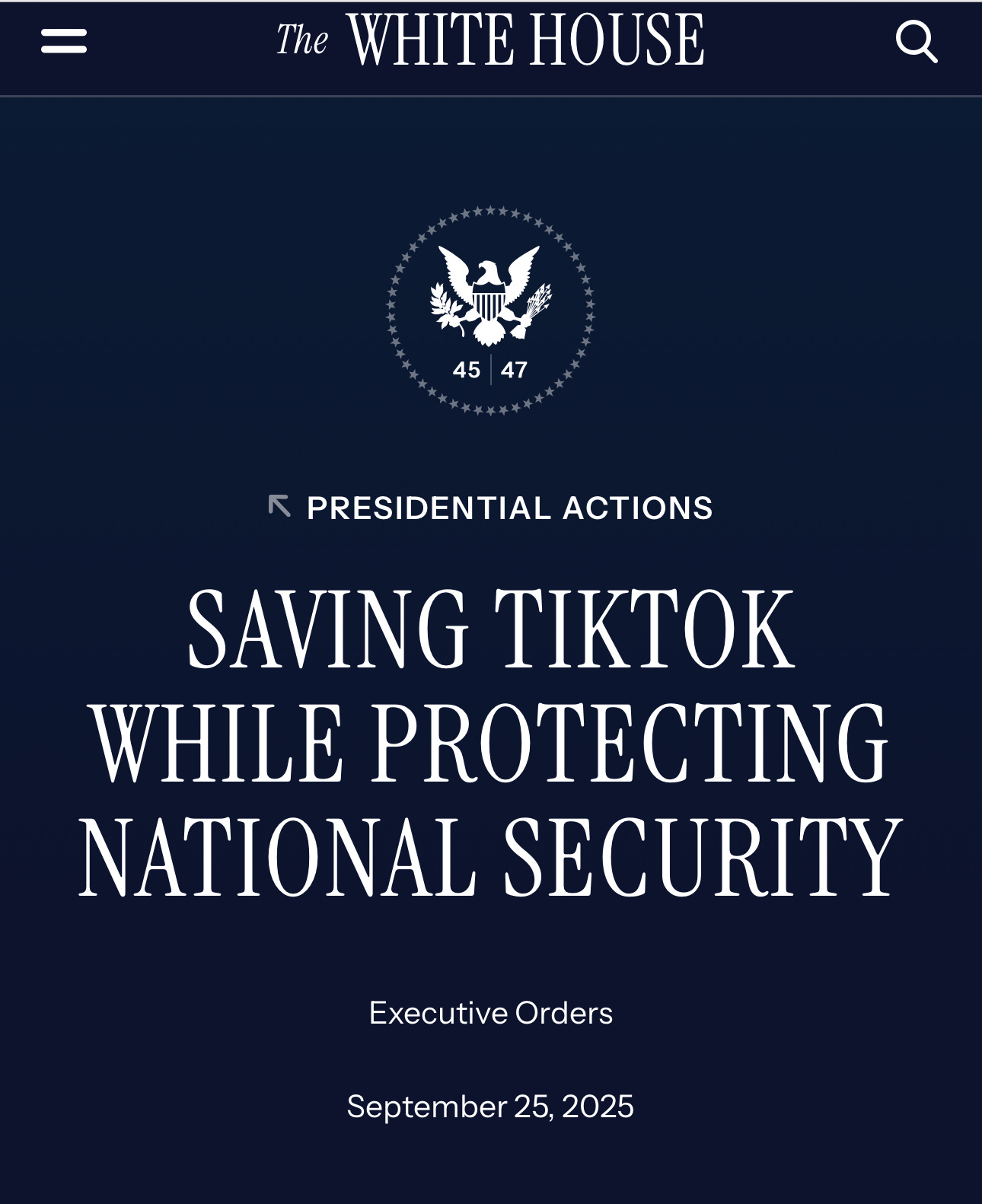Trump Signs Executive Order Approving TikTok Deal
On September 25, 2025, President Donald Trump signed an executive order in the Oval Office that formally approves a deal to divest TikTok’s U.S. operations from its Chinese parent company, ByteDance, to a consortium of American and global investors. This move complies with a 2024 bipartisan law—signed by former President Joe Biden—that mandates ByteDance divest its U.S. assets or face a nationwide ban on the app by January 2025. The order declares the proposed structure a “qualified divestiture,” addressing national security concerns over data privacy and potential Chinese influence, while pausing enforcement of the ban until December 16, 2025, to finalize implementation.
Key Details of the Deal
• Valuation and Ownership: Vice President J.D. Vance stated the new U.S.-based entity will be valued at approximately $14 billion. ByteDance will retain less than 20% ownership to meet legal requirements, with U.S. investors holding the majority stake (over 80%).
• Investors Involved: Trump named several high-profile participants, including Oracle co-founder Larry Ellison, Dell Technologies founder Michael Dell, and media mogul Rupert Murdoch (along with his son Lachlan). Oracle will oversee security and manage U.S. user data storage domestically. Other potential backers include venture capitalist Marc Andreessen and investment firm Silver Lake.
• Algorithm and Data Protections: ByteDance will provide a copy of TikTok’s proprietary recommendation algorithm, which will be replicated and controlled by the U.S. entity under Oracle’s supervision and government oversight. This aims to prevent foreign manipulation while preserving the app’s core functionality for its 170 million U.S. users.
• Chinese Approval: Trump credited a recent phone call with Chinese President Xi Jinping for the “go-ahead,” noting progress on broader U.S.-China trade issues. China’s Ministry of Commerce expressed support for “market rules and balanced interests,” though final approval from Beijing is still pending.
Background and Trump’s Reversal
This deal marks a significant turnaround for Trump, who attempted to ban TikTok during his first term in 2020 via executive order (later reversed by Biden). Trump has since embraced the platform, crediting it for aiding his 2024 campaign’s success with young voters—he even mentioned using it personally and receiving encouragement from the late conservative activist Charlie Kirk. The administration has extended the divestiture deadline multiple times, most recently in early September, to negotiate terms.
The agreement is hailed by White House officials as saving “thousands of jobs” and small businesses reliant on TikTok, while prioritizing American control. Critics, however, raise concerns about lingering risks of algorithmic bias, insufficient independent audits, and privacy issues even with domestic data storage.
Real-time reactions on X (formerly Twitter) reflect widespread coverage, with users and outlets like Fox News, NBC, and PJ Media amplifying the news. Posts highlight the deal’s focus on U.S. data protection and Oracle’s role, though some express skepticism over potential political influence.
This development underscores ongoing U.S.-China tech tensions, with the White House framing it as a win for national security and economic interests. Final closure awaits Chinese regulatory sign-off, expected “in the coming days.”

